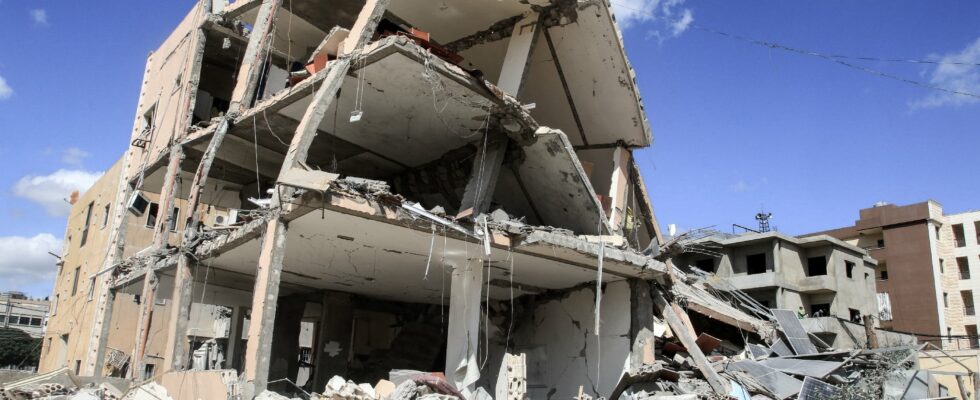“It was a disaster… We expected anything but that,” he confided to The Orient-The Day Iqbal, the owner of a supermarket in Nabatieh, in southern Lebanon. The country of the cedar woke up shaken, Wednesday, September 18, after a series of simultaneous explosions of pagers, the day before, which left at least twelve dead and nearly 3,000 injured, according to the Lebanese Ministry of Health. Among the victims of the explosions were the son of a Hezbollah MP and the Iranian ambassador to Lebanon, who was slightly injured.
Devices used by members of Hezbollah, a Shiite party that is an enemy of Israel, to communicate may have been tampered with, according to U.S. officials who spoke to the New York Times. The Lebanese Minister of Education announced on Wednesday the closure of schools and universities in the country, “as a way of condemning the criminal act” committed by Israel, according to a statement. This event “once again places Israel and Hezbollah on the brink of total war,” worries Haaretz“The attack attributed to Israel has exposed Hezbollah’s weakness and humiliated its leaders. This is not the kind of incident that ends quietly in the Middle East,” the Israeli daily said.
Technological snub
How could hundreds of beepers have exploded in salvos in the hand, pocket, or backpack of their owner? Were the devices hacked remotely or were they previously tampered with? For several hours, speculations from the press and analysts have been rife, trying to answer this question.
“The batteries used in the pagers can catch fire, but are not capable on their own of causing the deadly explosions that have occurred,” he notes in The Atlantic Robert F. Worth, a Middle East expert. American whistleblower Edward Snowden, who is based in Russia, also suggested on X that there had been “too many constant and very serious injuries” and not enough “fires and misfires” for the “overheated batteries exploding” theory to be plausible.
“Supply Chain Infiltration”
Although a cyberattack is possible, it seems unlikely given the “low-tech” nature of the pagers, explains the Washington Post (WP) Emily Harding, deputy director of the international security program at the Center for Strategic and International Studies, who leans more toward the theory of Israeli infiltration into the supply chain.
Elijah J. Magniermilitary analyst, also recalls that X that “Israel has a history of using booby-trapped explosive devices to target individuals and groups deemed threats, particularly in conflicts with Palestinian factions and Hezbollah.” He leans toward the use of high-powered explosives such as “cyclotrimethylene trinitramine” or “pentaerythritol tetranitrate,” “a small amount of which can generate a high-velocity explosion.”
“Beyond the modus operandi which is not yet known, this is the biggest security breach observed to date within the party. This operation demonstrates that Hezbollah has been overtaken technologically,” analyzes Janane Khoury, cybersecurity advisor, with The Orient-The Day. Hezbollah had, in fact, turned to these rudimentary devices precisely to pass under Israeli radar. Today, the attack has contributed to “mutilating thousands of fighters and perhaps paralyzing the group’s ability to respond if a broader conflict breaks out soon. It has also revealed the identities of the victims, shattering Hezbollah’s painstaking efforts to preserve the anonymity of its members,” notes The Atlantic.
“A stark warning”
Since the start of the war in the Gaza Strip, Hezbollah, a Shiite movement supported by Iran, and the Israeli army have exchanged fire almost daily on the Israeli-Lebanese border. “With 20,000 Israelis forced to flee the north of the country, Israeli officials have been saying for months that Hezbollah’s rocket attacks are unacceptable and that Hezbollah must be destroyed. Earlier this week, Israeli Defense Minister Yoav Gallant said that with prospects for diplomacy fading, military action was the only option,” he continued. The Atlantic.
“Is Israel seeking to deter Hezbollah from continuing its attacks in the north of the country and force it to reach an agreement that provides for the withdrawal of its forces from the Israeli border? Or is its goal to draw the terrorist organization into an all-out war?” he asks. Haaretz. Regardless, for Marc Polymeropoulos, a former senior CIA official, the series of attacks constitutes “a stark and brutal warning” to Hezbollah, “telling them that they were totally compromised and that a war would be disastrous,” he told the Washington Post.
Fears of total war
It remains to be seen how Hezbollah and its Iranian ally will react to this operation. Hezbollah Secretary General Hassan Nasrallah is due to speak on Thursday. “Hezbollah will feel that it has to react,” the WP William Wechsler, senior director of Middle East programs at the Atlantic Council. “Neither side wants a war to break out, but if it does, the casualties on both sides, including civilians, could be very high.” “If he decides to retaliate inside Israeli territory, it’s possible that it could escalate into an all-out war,” Haaretz adds.
“While Netanyahu was promising the Israeli public not so long ago that we were only a small step away from total victory over Hamas, today it seems that we are closer than ever to a full-scale war with Hezbollah as well. Victory [pour Israël]on all fronts, is still not on the horizon,” the Israeli daily believes.
